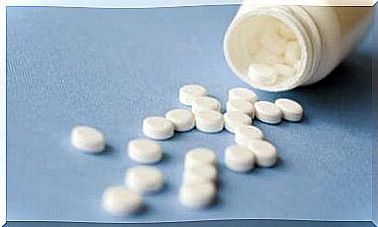The Microbiota In Addictions

Addictions are a very difficult type of disorder to treat due to the multitude of influencing factors. Therefore, research on its mechanisms and possible treatments does not stop. To this day, much is known about the mechanisms that produce it, but interesting results that can be very relevant continue to appear, such as the role of the microbiota in abstinence.
The microbiota is the set of microbes found in the mouth, vagina, skin, or intestines. This body ecosystem has already been related to other pathologies such as autism, Parkinson’s, anxiety or schizophrenia. And, apparently, it also contributes to the development of addictions.
Brain-gut axis
Today, the digestive tract is known to have its own nervous system, the enteric nervous system, which is made up of more than 500 million neurons. Thus, it communicates with the central nervous system (CNS) contributing to the functioning and balance of the brain.
Communication between these two systems is dynamic and bidirectional, so the microbiota can modify the neuronal activity of the brain and vice versa. However, the influence is not direct, since the brain is protected by the blood-brain barrier. Thus, intestinal neurotransmitters would act through the cells of the intestinal wall, causing them to communicate with the CNS.
In this sense, it has been found that the enteric nervous system is capable of producing a large part of the neurotransmitters that we have, such as dopamine, GABA or serotonin.
Addictions and microbiota
Substance addiction occurs because they activate the brain’s reward center, stimulating the secretion of neurotransmitters, especially dopamine. This produces a very pleasant sensation to which the brain quickly gets used to, requiring more and more doses or more.
As indicated before, it is currently known that the enteric nervous system also produces neurotransmitters such as dopamine and that, when the microbiota is not balanced, it is related to the appearance of pathologies. This has led to this ecosystem being put in the spotlight of addictions with very striking results.
Microbiota and alcoholism
In 2014, a study was published looking at the relationship of gut bacteria and alcohol addiction. For this, it was explored whether there was an alteration in the intestinal permeability and the microbiota of people suffering from alcoholism and whether this was related to the symptoms of dependence.
What they found was that those people who had developed leaky gut syndrome, which produces increased intestinal permeability, had higher levels of anxiety and a more intense withdrawal syndrome.
In addition, both the composition of the microbiota and its activity were altered. The researchers concluded that in alcohol addiction, the microbiota plays an important role, especially in the risk of relapse.
Food addiction
The relationship between food addiction and the microbiota has also been investigated by analyzing the feces of healthy people, their BMI and brain images. To do this, they focused on metabolites, which are produced due to the degradation of tryptophan, an amino acid present in many foods and that, after being degraded, is transformed into serotonin and, therefore, influences mood and health. conduct.
This process has two implications. On the one hand, the tryptophan once it has been broken down by intestinal bacteria, it is eliminated through the feces. On the other hand, in degradation, tryptophan is converted into indole, a metabolite involved in the gut-brain axis.
Thus, they found that indole was related to a higher degree of obesity and more uncontrolled intakes, possibly due to its action on the reward system. Specifically, with circuits related to the brain amygdala.
What treatments would there be?
These findings provide a different perspective on addictions, as well as potential new treatments. One might therefore hope that by reestablishing the balance of the intestinal flora some of the key aspects of addictions could be alleviated.
Some researchers propose, for example, to intervene in intestinal hormones. Others, on the other hand, propose treatments that, despite being simple and used in Chinese medicine, can be very striking.
This is the case of fetal microbiota transplantation. This procedure would basically consist of a stool transplant, by which microorganisms from a healthy donor would be administered into the intestine of a recipient patient.
At the moment, the efficacy of this treatment has only been tested in recurrent colitis, so its application to other pathologies is, for now, an idea. However, the role of the microbiota in addictions and other diseases continues to be investigated in the hope of finding new avenues of treatment.









